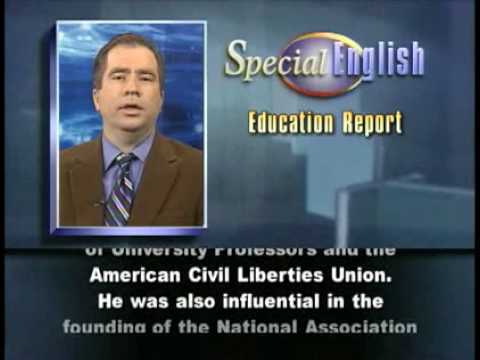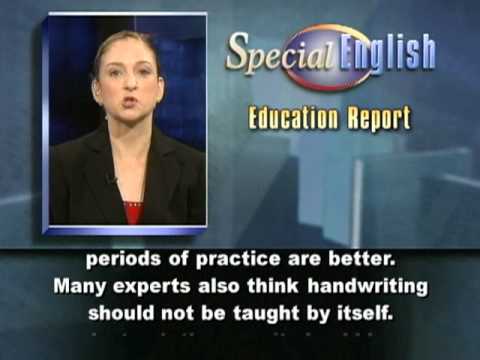This is the VOA Special English Education Report.
We had a question from China from a listener who wanted to know about John Dewey.
John Dewey was an influential thinker and educator. The New York Times once called him “America’s philosopher.”
Larry Hickman is director of the Center for Dewey Studies at Southern Illinois University, Carbondale. He was not surprised that the question came from China.
Mister Hickman told us he just returned from two weeks of meetings in Beijing in December. He and Chinese educators discussed the close relationship between Dewey’s ideas and those of Confucius.
He also worked with a group of Buddhists who like Dewey’s work very much because it goes along with some of the ideas of Mahayana Buddhism.
John Dewey described his ideas in books including “Democracy and Education,” “The School and Society” and “How We Think.”
Mister Hickman said Dewey was perhaps the best known philosopher, educator and public intellectual of the twentieth century. He was active in many fields, including education, philosophy, psychology and humanistic and humanitarian affairs. He was an important influence in the founding of the American Association of University Professors and the American Civil Liberties Union.
He was also influential in the founding of the National Association for the Advancement of Colored People, although he himself was white.
John Dewey was born in Burlington, Vermont, in eighteen fifty-nine.
He was influenced by the scientific work of Charles Darwin. He was also influenced by the work done with immigrant English learners in Chicago by Jane Addams. She was a social worker and the first American woman to win the Nobel Peace Prize. And Dewey was influenced by observing his own children.
At the University of Chicago, he founded the Laboratory School. But Dewey would likely have disagreed with many current practices in American education, like the wide use of standardized testing.
Larry Hickman said Dewey thought that testing had its place, but that testing should be more like medical tests. They should be testing for individual needs, interests and abilities, and not to compare one student to another.
John Dewey died in nineteen fifty-two. But Dewey scholar Larry Hickman says his ideas are still being taught in education schools.
And that’s the VOA Special English Education Report.

